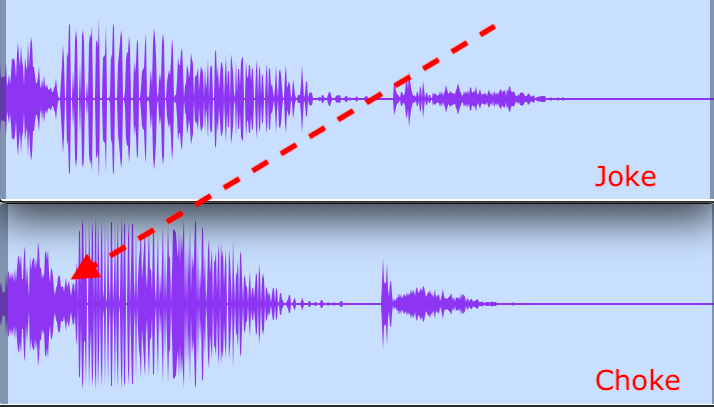I'm having difficulty distinguishing between the pronunciation of two words Joke and Choke from Cambridge Online Dictionary (UK pronunciation). Here're the links for the two sounds:
- https://dictionary.cambridge.org/media/english/uk_pron/u/ukj/ukjoc/ukjocul025.mp3
- https://dictionary.cambridge.org/media/english/uk_pron/u/ukc/ukcho/ukchock009.mp3
To my ears, it sounds like the /dʒ/ in Joke in the above recording has been completely devoiced (and this is typically for lenis sounds if they occur at the onset of stressed syllables in UK pronunciation as I can see).
Suppose that /dʒ/ has been devoiced, then is there any phonetic difference between it and the fortis counterpart? If no, then is there any acoustic difference between the recordings of Joke and Choke above?
